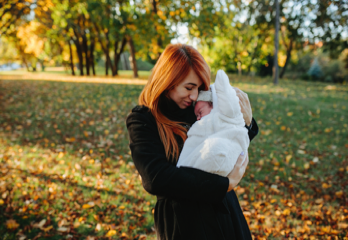Postpartum Depression
Thirty to 85% of women experience a brief period of postpartum blues (i.e., sadness, mood swings, irritability, tearfulness, anxiety, and insomnia) following childbirth and it usually does not require intervention. However, 10-15% of women experience a Major Depressive Episode after giving birth, often called postpartum depression. Most women with postpartum depression experience some symptoms within 4 weeks of childbirth. However, some describe symptoms developing slowly over the course of up to 6 months. A number of women begin to experience the onset of depression symptoms during pregnancy. It is quite normal for women with postpartum depression to have ambivalent or negative feelings toward their child or doubts about their ability to care for the child. Symptoms of Generalized Anxiety, Panic Disorder, Obsessive-Compulsive
Disorder are also often observed in women with postpartum depression.
Treatment:
Research indicates that post-partum depression can be treated effectively with medications, though some forms of psychotherapy appear to have a lower rate of relapse than medications. In particular, individuals who have gone through Cognitive Behavior Therapy (CBT) appear less likely to experience subsequent depressive episodes. A combination of medication and CBT is often the most appropriate treatment for those experiencing post-partum depression, simply because mothers need to quickly get back to being able to care for their new baby.

